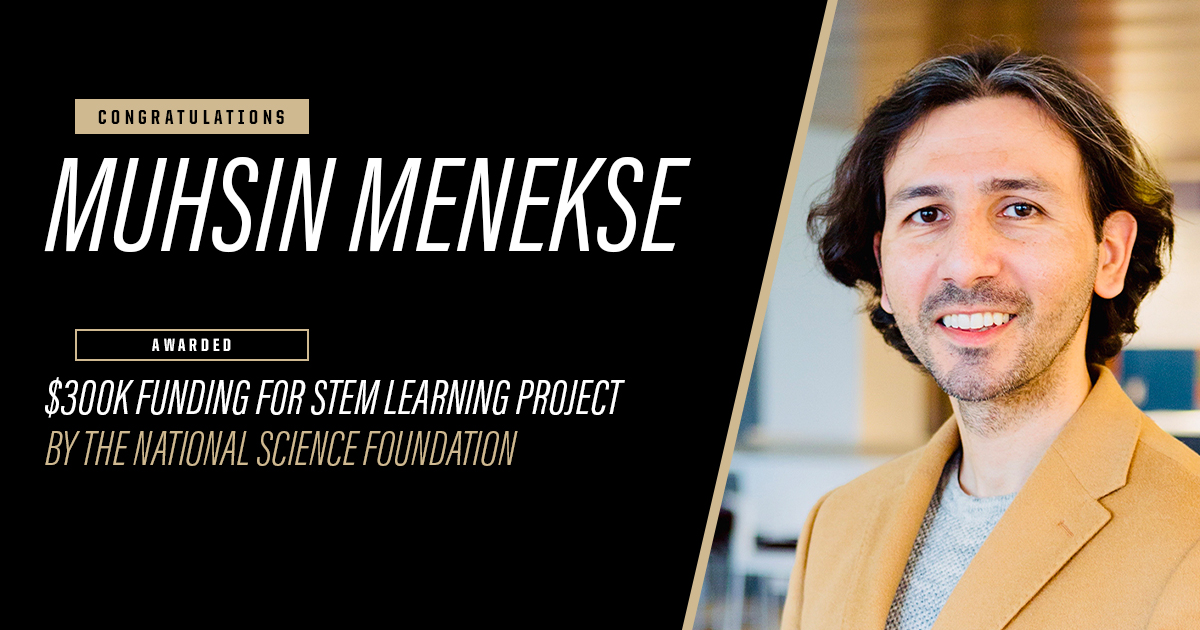NSF awards Menekse team $300K funding for STEM learning project

Muhsin Menekse
The National Science Foundation (NSF) has awarded a Purdue University College of Education and College of Engineering faculty member $300,000 in funding to enhance student learning and engagement in large lecture STEM courses.
Muhsin Menekse (PI), associate professor in the College’s Department of Curriculum & Instruction and the School of Engineering Education, will collaborate with Dominic Kao (Co-PI), assistant professor and director of Virtual Futures Lab in the Purdue Polytechnic Institute, and Diane Litman, professor in the School of Computing and Information at the University of Pittsburgh.
The two-year award is funded by the NSF’s Division of Information and Intelligent Systems, and is titled, “EAGER: Developing and Optimizing Reflection-Informed STEM Learning and Instruction by Integrating Learning Technologies with Natural Language Processing.”
“With this funding, our goal is to enhance student learning and engagement in large lecture STEM courses by developing, optimizing, and evaluating a digital learning environment called CourseMIRROR,” Menekse said. “CourseMIRROR uses Natural Language Processing (NLP) algorithms and techniques to prompt and scaffold students to create in-depth reflections on their learning experiences.”
The research team will explore how learning and engagement can be enabled, improved, and supported across different courses using digital tools, social interactions, and practices.
Menekse hopes that by examining students’ learning through purposeful reflection and feedback loops, the project will provide a route to personalized learning with innovative approaches to vital problems in the increasingly global economy and will open an important new research direction in learning sciences and emerging technologies.
“This is the third major grant that we have received for this project, and our team has been developing new features, and tools, and conducting different studies since 2015,” Menekse explained. “The multidisciplinary nature of the project team and work ensures that our results will be reached across traditional disciplinary silos, generating impact in multiple fields, including Artificial Intelligence (AI), Human-Computer Interaction (HCI), and STEM education.”
Source: Muhsin Menekse, menekse@purdue.edu